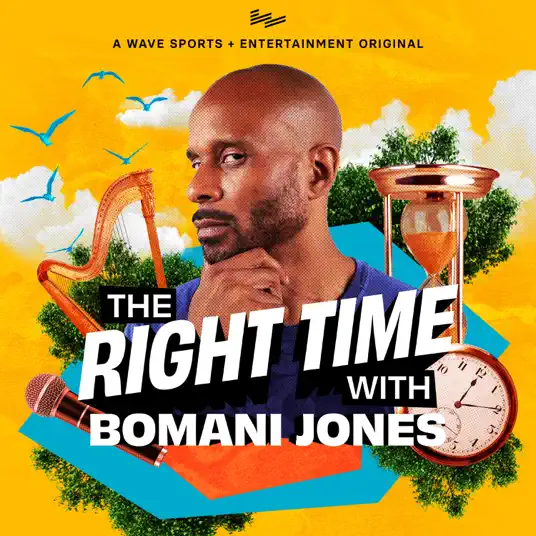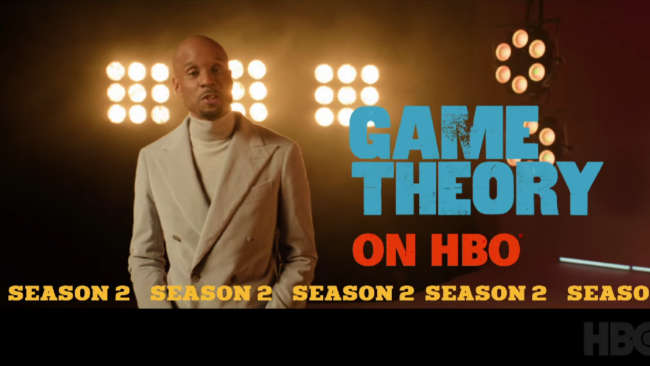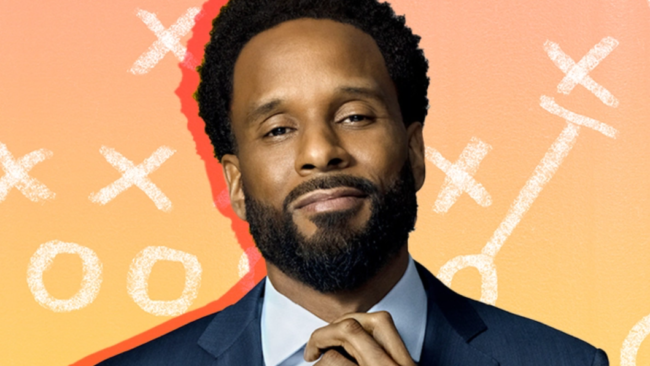So I ordered HBO the other day to watch “When The Levees Broke.” After I TiVo a few episodes of “The Wire” and a couple of comedy specials, I’m gonna cut that shit right back off. I figure if I’m willing to pay a dub to treat someone to a movie, it’s worth 11 bucks to treat this like Netflix. Wouldn’t you agree?
Anyway, Spike did a bang-up job with this one. The greatest compliment I can give Spike’s work right now is that he’s finally gotten a handle on how to explore his passions on film. He’s fairer than he’s ever been, but he’s still able to get his points across. It’s like he argues now with passionate logic instead of just unfocused passion. To him, I tip my hat. So does that woman that one time called him a nigger on the set of Jungle Fever.
But watching that left me with the Katrina conundrum I just can’t get past–what to do about rebuilding.
I admit I haven’t kept close watch lately of rebuilding plans. Last time I checked, it looked like a significant proportion of the black population would not be able to move back. It was heartbreaking to hear, but I understood. Sorry, but I just can’t advocate moving people back to an unsafe area.
Now, after watching “When The Levees Broke,” I’m in a worse position than I started in. I’m more heartbroken but probably surer that rebuilding isn’t really the best idea.
Why heartbroken? Because New Orleans was the most vibrant city in the country. I don’t know if there’s another place on Earth that stands out from everything around it like New Orleans. Visiting the 504 is really like visiting another country, if not another world. The folks had those gorgeous accents. They tend to speak with some of the most interesting diction. They partied like no other and cooked like no other, incorporating African traditions with European culture to make a special, special place.
To lose black people is to lose that. A culture has been dispersed across the country. Will it be able to sustain itself? Maybe in places like Houston. But I’m pretty damn sure there will be no second lines in Salt Lake City.
But goodness gracious, those black folks had it bad in the city. While I say New Orleans was the most vibrant city in the country, it was also the dreariest. Centuries of crooked governments and racism left New Orleans as a scary place in many ways. Its projects had a national reputation for being the worst in America. The heroin problem was atrocious. Public schools were laughably bad (I promise, out of all the people I went to college with from New Orleans, maybe 2 went to public school).
The city needed rebuilding before the storm. Now? I just don’t know if it can be done properly. In fact, I’m pretty sure it can’t be.
That point kills me when I think about how much those folks love that city, man. What’d that lady say in the doc?
“I was born here and this is where-the-fuck-I’m-gon’-die.”
That wasn’t the first time I’ve heard that one. And to be honest, I understand it. If that singular place is what you know, I can see it being a mutha to head somewhere else out the blue. I’m not moving to Mexico, shit.
But we’ll see how this goes. If you haven’t seen the doc, call HBO and get a couple days from ’em. It’s worth it.
7 thoughts on “When The Levees Broke, Pt. II”
Leave a Comment
You must be logged in to post a comment.





…And please be sure to catch that “Wire Re-Up.” It’s the best thing we got going in B-More besides McNair.
You are so right re: Spike and this film. I would argue that it’s his greatest work, and clearly articulates a number of the issues that his fiction films have struggled with (and often times stumbled through). It’s a watershed moment re: documentary filmmaking and like his infamous dolly shot, will affect not just the look of, but the tone and tenor of non-fiction films to come.
Heartbroken is the perfect word to describe the feeling one is left with after watching this film. I sat on my couch both nights watching, drinking wine, and crying. Heartbroken for so many reasons, but especially because I wasn’t fortunate enough to have ever visited the city, and knowing full well that if I do, and I intend to, that it’s not the same place it was before the levees broke.
I champion the cause of The Wire wherever I go, and not just because I’m close to two people involved (one in front of the camera, and the other behind the scenes). It’s one of the best police procedurals on tv, and most certainly hasn’t gotten it’s just due.
I visited New Orleans a week before Katrina hit on August 29th. I understand what you mean when you say it was like another country because for all intents and purposes, it was. I was there for a med school convention, and my dad and I were staying at The Fairmont, right on Canal Street. New Orleans was gorgeous. We were lucky enough to take a coach tour through the city the day before we left – and we got a chance to see everything from the swap-meet area down by the water to the Louis Armstrong statue and state parks. I haven’t been back since last August, but I’m not sure if I ever want to visit again. Without it’s people, New Orleans isn’t the same small BIG city that it was. I loved New Orleans.
I only have HBO for Entourage, but I was hella-excited to see the new Spike joint – but then my power went out in a massive storm the night the first part aired on HBO. I taped the second part from Tuesday night but haven’t seen it yet. Just an FYI – the entire documentary will be shown in its entirety (4 hours) on August 29th (HBO).
God Bless the NO.
Off-topic, but important.
G-Code: Use of the word “hella” is forbidden.
It’s a west coast thing, Ben.
I was born in California and lived there until 8 months ago. It’s not a west coast thing.
Hello Bomani,
I rarely respond to your posts but being a Native of New Orleans I wanted to say something. Unlike my family I have not watched When the Levees Broke for various reasons but the prevalent one being that it still hurts. I did not live in New Orleans physically at the time of the storm but my heart has never left. No matter where I live I carry New Orleans in my heart and soul. You are right there is no other place like it in the world. However not all black people lived terrible lives in the city. Yes it had major issues but what city does not. My family and I still visited the city on the regular because you never get it out of your system. But when Hurricane Katrina destroyed that city it destroyed apart of each and everyone of its natives believe me.
My friends that have relocated here to Texas and I have discussed how some of them would have never left the city if Katrina had not taken place, even though the job market was horrible for those of us who did not want to work in the hospitality industry. However we do agree that the city must be rebuilt for the sake of our sanity and to show the rest of world what we are made of. Many people agree with you that it should not be rebuilt but believe me for those of us who love New Orleans, the city and its people made me the incredibly vibrant, loving and well rounded person that I am.
Even if the world does not need New Orleans there are those of us whose history and family legacies that tie us to the city we love. I was born in New Orleans at the Touro Infirmary and when I die I want them to bury me there and second line from the cemetary in Gentilly all the way to the front of Greater St.Stephen’s Full gospel Church.
Carla